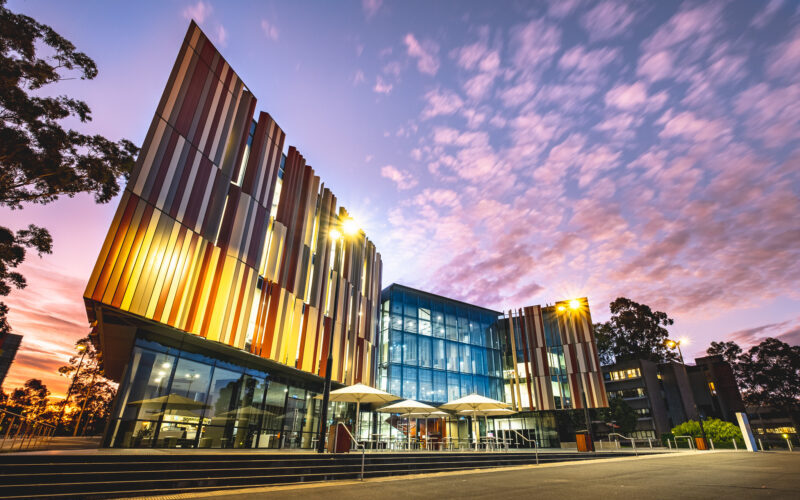Thousands of jobs are on the chopping block at universities across the country, with many freezing new hires, putting a hold on casual contracts or proposing redundancies, while muzzling students and staff, says Claire Parfitt.
The higher education sector is crumbling under the weight of its broken business and governance models.
Just last week, Macquarie University has taken an axe to its arts, science and engineering programs. It has been clear for a long time that the sector relies financially on exploiting international students, stealing wages from already poorly paid casual academics, squeezing staff by intensifying workloads, and pandering to investors for commercially viable research.
The only viable future for quality higher education and research requires significantly more public funding. But how could one possibly make a case for expanding taxpayer dollars to these craven institutions in the current climate of repression?
Publicly-funded universities must be accountable to their staff, students and the communities in which they are embedded. Australian universities have consistently failed this test during the current genocide against Palestinians.
Lack of transparency
At the University of Sydney, like many others, staff and students have overwhelmingly voted in favour of greater transparency about the institution’s complicity in Israel’s war crimes, particularly given its relationship with military contractor Thales. They have also called for an academic boycott of Israeli institutions in line with the Palestinian civil society campaign for Boycott, Divestment and Sanctions – aka the BDS movement.
Students advocated for these demands with a months-long encampment on the University’s lawns in mid-2024. A settlement to end the encampment was premised on the University’s commitment to review its investments in relation to human rights abuses and the rights of Indigenous peoples in particular. Submissions were made by collectives of staff, by the NTEU, by the Jewish Council of Australia and the Sydney Peace Foundation, among others. To date, this working group has issued no response.
Facts and evidence missing in claims about increasing antisemitism
Management’s lack of commitment to this investment review is further demonstrated in its absence from the 2024 Annual Report, released end of May.
What the finances do reveal, though, is that the University is deeply reliant on investment and philanthropic income (2024: $599.5m) to support its daily operations—making it even more important for the University to investigate and report on its exposure to grave human rights abuses related to Israel’s war crimes, crimes against humanity, apartheid practices, and its illegal occupation of Palestinian land.
For example, the University holds almost $5B in “other financial assets” in a range of investments including equities, bonds and externally managed funds, the proceeds of which are largely used to support the core activities of teaching and research. At least $959m of these funds are specifically tied to scholarships, prizes and research projects (Note 15, Annual Report, p106-7).
Muzzling free speech
Instead of being accountable to staff, students and the community, the University has imposed draconian limits on political expression, protest and communication. This includes the imposition of the Campus Access Policy, which was widely condemned (letter by Sydney Law School academics, NSW Council for Civil Liberties).
This week, the Vice Chancellor has issued another suite of repressive policies pertaining to communication between staff, public comment, and posting promotional material. The adoption by Universities Australia of a new definition of antisemitism, opposed by a meeting of Sydney University staff in May, is exacerbating this crushing climate of fear and intimidation against those expressing support for Palestinians.
Many staff and students are already subject to disciplinary proceedings in this authoritarian environment. One international student and asylum seeker feared deportation to danger due to disciplinary investigations for writing “from the river to the sea Palestine will be free” on a whiteboard.
Staff and students are routinely prevented from communicating with one another about the genocide; from making announcements about protests; from wearing items such as keffiyeh on university grounds; from posting thoughtful and respectful observations on shared online noticeboards;
even from discussing the genocide and associated allegations of war crimes in classes about human rights, humanitarian law and politics.
Genocide whitewash
Meanwhile, the University has further whitewashed the genocide by hosting members of the Israeli military for an event in April, and awarding a leading apologist for the Israeli state with an honorary doctorate in May 2025, while also withdrawing its patronage of the Sydney Peace Prize after 27 years. This year’s prize is awarded to Navi Pillay for a career dedicated to accountability for crimes against humanity, including in Navi’s role as Chair of the Commission of Inquiry on the Occupied Palestinian Territory.
Management’s preferred approach to addressing demands for accountability is to ‘build a civic campus’ with its ‘Campus Collaboration’ project, which it describes as an effort to ‘invigorate campus life and foster a culture of thoughtful disagreement’ (Annual Report 2025, p43).
Yet the initiative does so on a dishonest and ahistorical basis, failing to recognise decades of brutal colonial violence against Palestinian people and its devastating acceleration since October 2023.
We deserve a university system that provides high-quality education, supported by research in the public interest, to meet the enormous social, economic, and ecological challenges we face in Australia and around the world. The broken model of extracting extortionate fees from students, intensifying workloads for staff, paying exorbitant salaries to corporate managers, depending upon financial investments and commercial research partners,
compromises the university as an institution.
But if we are to demand that universities be properly funded by the state, those institutions must be meaningfully accountable to the communities in which they are embedded rather than to the corporate interests funding lucrative military research, powerful media empires and rogue states like Israel.
Manufactured antisemitism. Universities relied on fudged numbers
Claire Parfitt is a Lecturer in Political Economy at the University of Sydney and author of False Profits of Ethical Capital. Her research contributes to debates in the social studies of finance, moral philosophy, economic geography, cultural economy, intellectual property and interdisciplinary accounting literatures.

